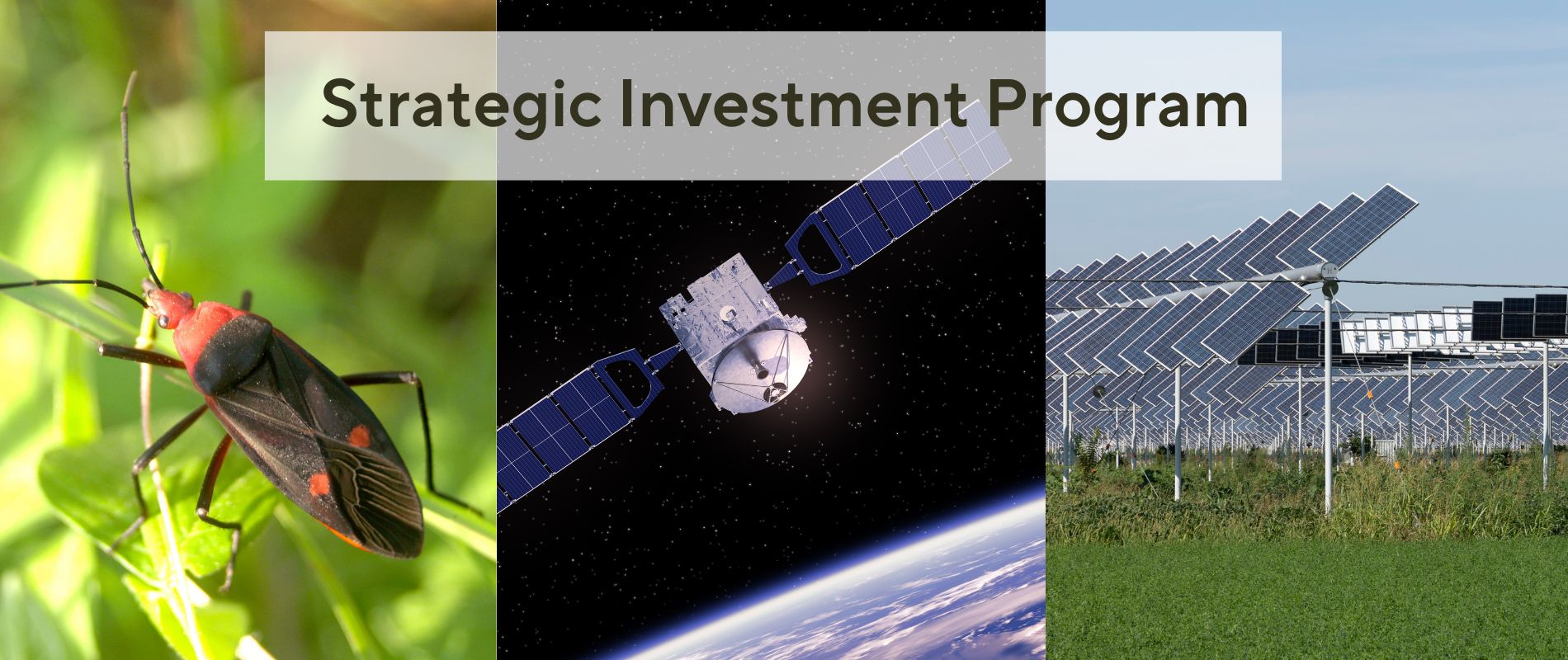Researchers from the ANU Research School of Biology and Research School of Engineering have received support for projects with a focus on solving agricultural challenges in the latest round of funding under the CEAT Strategic Investment Program.
Congratulations to Professor Bob Furbank (ANU Research School of Biology), Associate Professor Benjamin Schwessinger (ANU Research School of Biology), and Dr Marco Ernst (ANU Research School of Engineering) whose projects tackle a variety of challenges in the agrifood sector ranging from plant phenotyping and plant biosecurity, to agrivoltaics.
Professor Furbank’s project ‘Predicting key agronomic traits in canola from satellite imaging’ tests the feasibility of using machine learning on high resolution satellite images to predict key crop traits – including yield – in canola, at a landscape scale. Currently phenotyping is done manually or through drones, which poses challenges in terms of efficiency and scale, as well as being very costly. This project involves collaboration with La Trobe University, and industry partners like Australian Grains Technologies and SmartSat CRC. The work has the potential to transform canola phenotyping in Australia, and, if successful, satellite-derived phenotyping of agronomic traits would be revolutionary for grain-crop breeding.
Associate Professor Schwessinger’s project ‘Botanical Bugs and Biosecurity’ aims to address increasing biosecurity threats in Australia’s plant industries due to pests, pathogens, and climate change. Recognising the need for advanced technologies and a future biosecurity workforce, the project partners with the South Australian Research and Development Institute and tech company Data Effects to build on their successful iMap PESTS project and place an automated sentinel unit in Canberra’s National Arboretum or Botanic Gardens. The unit will engage school students in surveillance, biodiversity, and climate adaptation, helping to foster the next generation of biosecurity experts. It will also provide ANU with an opportunity to build further collaborations and showcase its research capabilities in the biosecurity space.
Dr Marco Ernst was also awarded funding for his project ‘Improving Energy Yield Forecasting of Agrivoltaic Systems’. His project focuses on accurate yield prediction for agricultural land users in Australia, specifically in the context of agrivoltaics. It aims to understand the impact of surface light reflection on yield prediction, a relatively unexplored area in Australia. The project partners with the University of Melbourne and will set up sensors to gather data on solar irradiance, reflection, and weather – crucial for yield modelling. Additionally, it plans to validate a low-cost analysis system for solar measurements. The project aims to improve yield predictions, enabling better revenue prediction for farmers selling renewable electricity, and potentially leading to more widespread adoption of agrivoltaics.
The Strategic Investment Program provides funding support to ANU researchers looking to have real-world impacts in the agricultural sector through collaborations with industry. Categories of support include:
- Scoping projects to undertake preliminary investigations into industry need for an idea or solution they are looking to develop;
- Engagement projects to undertake workshop, co-design and/or prototyping activities with industry partners to refine ideas and solutions; and,
- Collaboration projects to provide seed funding to support interdisciplinary teams to leverage external funds for projects that develop solutions to an industry-identified challenge in the agricultural sector.
The next round of the program will open for Engagement and Collaboration projects next year. Expressions of interest for Scoping projects are open any time, please see the CEAT website for further details.
